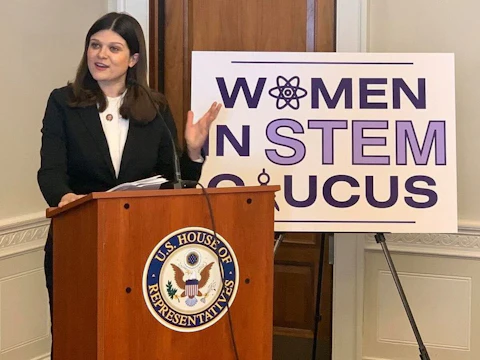A Michigan woman fighting against transgender discrimination, Aimee Stephens, died this week. How her death has been covered shows just how important her work truly was.
REDFORD, MI — A transgender woman advocating for the rights of her community in Michigan died Tuesday in the midst of a landmark Supreme Court case. Fifty-nine year old Aimee Stephens will never get to see how the Court would decide her case on transgender discrimination.
“Aimee did not set out to be a hero and a trailblazer, but she is one,” said American Civil Liberties Union lawyer Chase Strangio in a statement following the announcement of her death. “And our country owes her a debt of gratitude for her commitment to justice for all people and her dedication to our transgender community.”
Stephens died in hospice on Tuesday following a battle with kidney disease.
She created waves of change in Michigan, fighting for the right to simply be who she was.
Her Brave “Adventure”
“I have learned that life is an adventure and would like to believe that the best is yet to come,” Stephens wrote in the 2013 letter coming out as transgender to her employer, R.G. and G.R. Harris Funeral Homes.
The Livonia company ended up moving in a harsh direction for that adventure: They fired her.
In Michigan, as in most states, it is still entirely lawful to fire or evict someone based only on the fact that they are transgender. In fact, any latter of the LGBTQ acronym’s many permutations can lose their home or job in Michigan for the simple fact of their identity.
Stephens was joined by the Equal Employment Opportunity Commission for the lawsuit Harris Funeral Homes v. EEOC, which is still pending a decision from the Supreme Court. The Sixth Circuit Court of Appeals sided with Stephens and the EEOC’s argument that firing her for her transgender status was, ultimately, firing her based on sex and therefore a violation ot Title VII of the Civil Rights Act of 1964.
Why Her Battle Will Still Live On
Most standards for shortening the often lengthy formal titles of lawsuits won’t name Aimee Stephens, but her name will likely be included in the same breath as other legendary LGBTQ activists like Harvey Milk, Matthew Shepherd or Brandon Teena. And in a happy rarity in the LGBTQ community, Stephens didn’t have to be a martyr to create change.
As an aside, the fight to change that isn’t one only for the courts. A petition to change Michigan’s nondiscrimination law to add protections for the LGBTQ community is currently in the petition phase, The ‘Gander reports, and has two more weeks to get the needed signatures through its groundbreaking digital petition process. Stephens tragically won’t see the outcome of that fight either.
Stephens’ death has ignited a number of opinion pieces calling for action like signing that petition. CNN encouraged readers to see Stephens’ death as a call to act in her memory. In their piece, Forbes even conditioned Stephens’ ability to rest in peace on the outcome of her court case. That wasn’t the path she had intended to set out on with her simple, hopeful letter in 2013, but it was who she became.
RELATED: Trans Southerners Don’t Feel Safe Seeking Health Care. That’s a Huge Problem in a Pandemic.
Why Her Fight Still Needs to be Fought
No one who is a trailblazer goes into the good night without the world having trouble adjusting. Both the New York Times and the Detroit News felt it necessary to include the name that Aimee Stephens was born under. This practice, called “deadnaming”, is extremely offensive to transgender people because it both exposes a history they have worked to break from and because it seems to assert that their new, legitimate name is somehow not authentic.
Editorial Note: While The ‘Gander attempts to offer outbound links to any articles we cite, because of the offense to Stephens’ memory by the above outlets, we’re linking instead to Media Matters, who discussed the actions of the News and the Times. Also, it should be noted the Associated Press initially included Stephens’ deadname in its wire reports, but issued a correction removing the content citing its unintentionally offensive nature.
Though likely done without any malicious intent, the disconnect between those outlets and Stephens’ identity even in her obituary adds a sobering reminder of the kind of struggles Stephens faced.
“It serves no purpose of integrity to publish a transgender person’s ‘deadname’, or former name, as the @nytimes did here in Aimee Stephens’s obituary,” tweeted LGBT legal advocacy group Lambda Legal. “Aimee deserves better.”
How to Support Stephens’ Legacy
In addition to the petition and Supreme Court cases, support for organizations like the ACLU or Lambda Legal help carry on Stephens’ work. But there are more direct ways to support her legacy as well.
A GoFundMe campaign is underway to fund Stephens’ end-of-life costs. At more than 650 donors it has well exceeded its goal of $15,000 to a total at time of publication of $25,790. Hundreds of small-dollar donations flooded into the campaign following Stephens’ death. But even before she passed, the response had been inspiring.
“The response has been overwhelming,” a May 9 update on the GoFundMe read. “We are very thankful for everyones [sic] generosity and expressions of support and love … She is thankful and gets peace from the comments that have been shared.”





